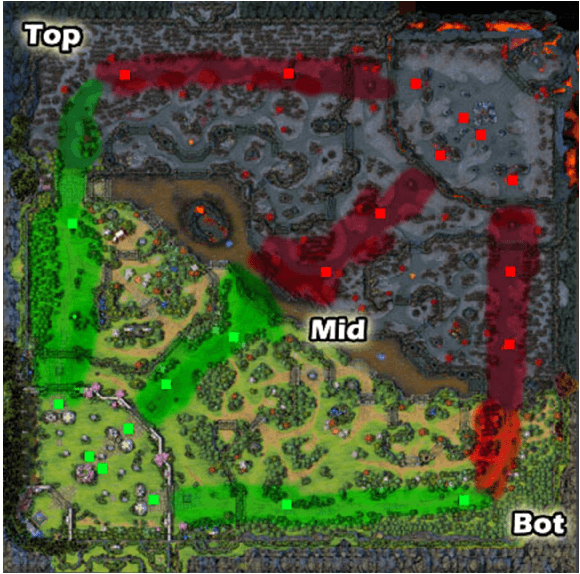Tobias Mahlmann
modl.ai
Human-like Bots for Tactical Shooters Using Compute-Efficient Sensors
Dec 30, 2024



Abstract:Artificial intelligence (AI) has enabled agents to master complex video games, from first-person shooters like Counter-Strike to real-time strategy games such as StarCraft II and racing games like Gran Turismo. While these achievements are notable, applying these AI methods in commercial video game production remains challenging due to computational constraints. In commercial scenarios, the majority of computational resources are allocated to 3D rendering, leaving limited capacity for AI methods, which often demand high computational power, particularly those relying on pixel-based sensors. Moreover, the gaming industry prioritizes creating human-like behavior in AI agents to enhance player experience, unlike academic models that focus on maximizing game performance. This paper introduces a novel methodology for training neural networks via imitation learning to play a complex, commercial-standard, VALORANT-like 2v2 tactical shooter game, requiring only modest CPU hardware during inference. Our approach leverages an innovative, pixel-free perception architecture using a small set of ray-cast sensors, which capture essential spatial information efficiently. These sensors allow AI to perform competently without the computational overhead of traditional methods. Models are trained to mimic human behavior using supervised learning on human trajectory data, resulting in realistic and engaging AI agents. Human evaluation tests confirm that our AI agents provide human-like gameplay experiences while operating efficiently under computational constraints. This offers a significant advancement in AI model development for tactical shooter games and possibly other genres.
The Dota 2 Bot Competition
Mar 04, 2021

Abstract:Multiplayer Online Battle Area (MOBA) games are a recent huge success both in the video game industry and the international eSports scene. These games encourage team coordination and cooperation, short and long-term planning, within a real-time combined action and strategy gameplay. Artificial Intelligence and Computational Intelligence in Games research competitions offer a wide variety of challenges regarding the study and application of AI techniques to different game genres. These events are widely accepted by the AI/CI community as a sort of AI benchmarking that strongly influences many other research areas in the field. This paper presents and describes in detail the Dota 2 Bot competition and the Dota 2 AI framework that supports it. This challenge aims to join both, MOBAs and AI/CI game competitions, inviting participants to submit AI controllers for the successful MOBA \textit{Defense of the Ancients 2} (Dota 2) to play in 1v1 matches, which aims for fostering research on AI techniques for real-time games. The Dota 2 AI framework makes use of the actual Dota 2 game modding capabilities to enable to connect external AI controllers to actual Dota 2 game matches using the original Free-to-Play game.se of the actual Dota 2 game modding capabilities to enable to connect external AI controllers to actual Dota 2 game matches using the original Free-to-Play game.
* 6 pages
Accelerating Empowerment Computation with UCT Tree Search
Mar 27, 2018



Abstract:Models of intrinsic motivation present an important means to produce sensible behaviour in the absence of extrinsic rewards. Applications in video games are varied, and range from intrinsically motivated general game-playing agents to non-player characters such as companions and enemies. The information-theoretic quantity of Empowerment is a particularly promising candidate motivation to produce believable, generic and robust behaviour. However, while it can be used in the absence of external reward functions that would need to be crafted and learned, empowerment is computationally expensive. In this paper, we propose a modified UCT tree search method to mitigate empowerment's computational complexity in discrete and deterministic scenarios. We demonstrate how to modify a Monte-Carlo Search Tree with UCT to realise empowerment maximisation, and discuss three additional modifications that facilitate better sampling. We evaluate the approach both quantitatively, by analysing how close our approach gets to the baseline of exhaustive empowerment computation with varying amounts of computational resources, and qualitatively, by analysing the resulting behaviour in a Minecraft-like scenario.
Skill-Based Differences in Spatio-Temporal Team Behavior in Defence of The Ancients 2
Mar 24, 2016



Abstract:Multiplayer Online Battle Arena (MOBA) games are among the most played digital games in the world. In these games, teams of players fight against each other in arena environments, and the gameplay is focused on tactical combat. Mastering MOBAs requires extensive practice, as is exemplified in the popular MOBA Defence of the Ancients 2 (DotA 2). In this paper, we present three data-driven measures of spatio-temporal behavior in DotA 2: 1) Zone changes; 2) Distribution of team members and: 3) Time series clustering via a fuzzy approach. We present a method for obtaining accurate positional data from DotA 2. We investigate how behavior varies across these measures as a function of the skill level of teams, using four tiers from novice to professional players. Results indicate that spatio-temporal behavior of MOBA teams is related to team skill, with professional teams having smaller within-team distances and conducting more zone changes than amateur teams. The temporal distribution of the within-team distances of professional and high-skilled teams also generally follows patterns distinct from lower skill ranks.
 Add to Chrome
Add to Chrome Add to Firefox
Add to Firefox Add to Edge
Add to Edge